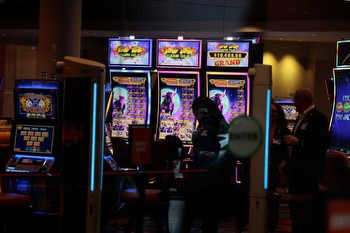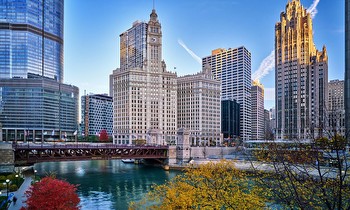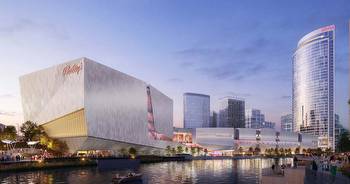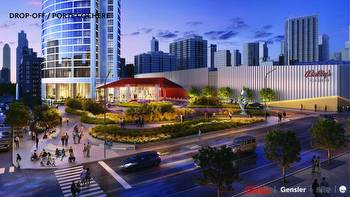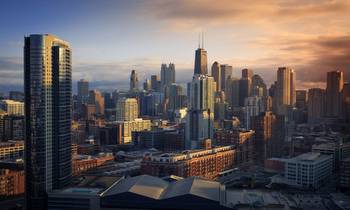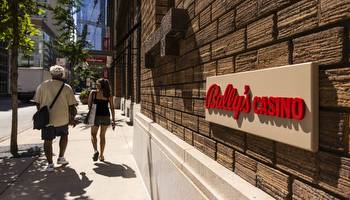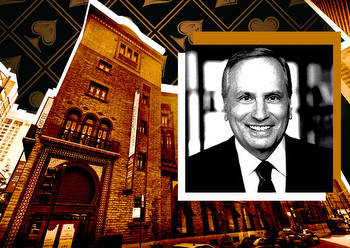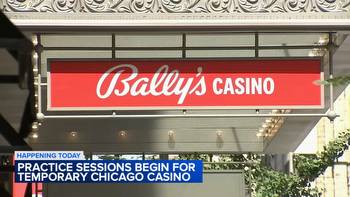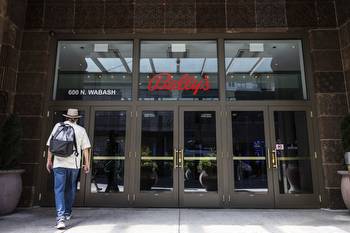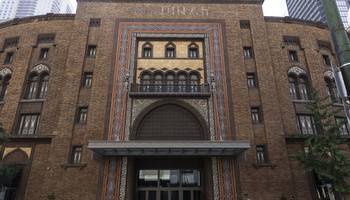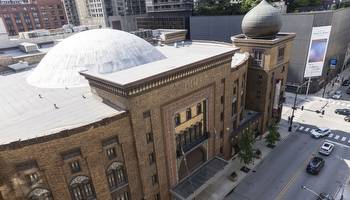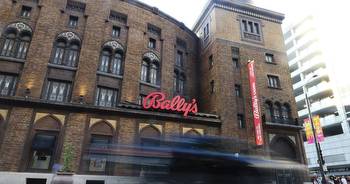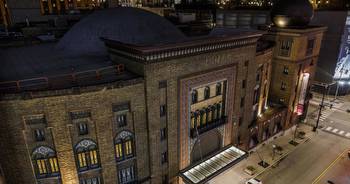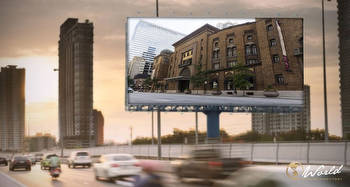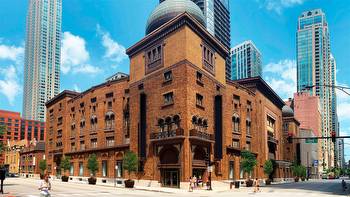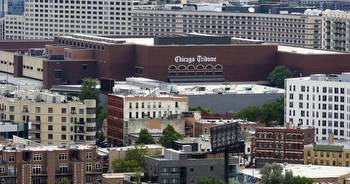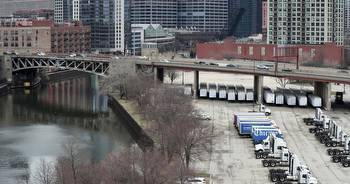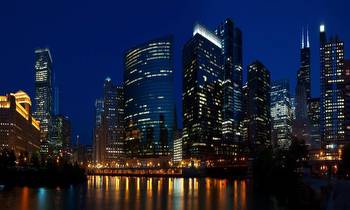Bally's gets Gaming Board approval to open temporary casino
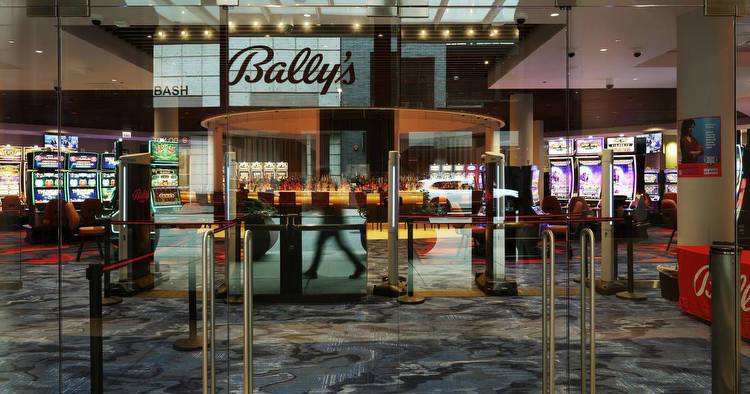
After years of planning, months of buildout and several days of monitored practice sessions, Bally’s Chicago got the green light Friday from the Illinois Gaming Board to launch the city’s long-sought first casino.
Medinah Temple in River North is set to swing open its doors this weekend, welcoming gamblers to try their luck at an ornate temporary facility that is expected to fill revenue holes at the city, draw tourists downtown and set the table for what will ultimately be the state’s largest casino.
“We would like to thank the Illinois Gaming Board for granting Bally’s the approval to begin welcoming public guests,” Mark Wong, vice president and general manager of Bally’s Chicago, said in a news release Friday. “Their confidence in our team’s ability to meet or exceed all regulatory requirements comes after months of extensive validation.”
Bally’s successfully completed two days of practice gaming sessions under the watchful eyes of regulatory staff and an outside auditing firm on Wednesday and Thursday, earning the casino a temporary operating permit from the Gaming Board. Proceeds from the practice sessions will be donated to local Chicago charities during a ribbon-cutting ceremony later this month, the company said.
In addition, Bally’s must pay the Gaming Board more than $135 million in upfront fees within 30 days, which will be used to fund infrastructure projects statewide.
The real gambling will begin Saturday at 8 a.m., and Bally’s Chicago will be open seven days a week from 8 a.m. to 4 a.m.
It has already been a long journey for both Bally’s and the city, with high stakes riding on the casino’s success.
Rhode Island-based Bally’s won a heated competition last year, besting four other proposals with its plan to build a $1.74 billion casino at the site of Tribune Publishing’s Freedom Center printing plant in River West. It plans to open the permanent casino in 2026.
Medinah Temple will serve as a temporary casino for up to three years while the permanent facility is built.
Chicago has been looking to land a casino for more than three decades. The quest has led to an unlikely temporary destination — the landmarked, 111-year-old Moorish-style amphitheater, perhaps best known for hosting the annual Shrine Circus. More recently, it had been a vacant furniture store.
Bally’s Chicago has been renovating the 130,000-square-foot Medinah Temple since January. Now the three-story, block-long building on North Wabash Avenue is filled with nearly 800 slot machines and 56 gaming tables, an expansive blue-lit center bar, two restaurants and a coffee shop.
Historic touches remain, including an atrium looking up to the ornate rotunda lined with inset stained glass windows. Modern casino amenities include six new brightly lit washrooms.
Bally’s put out the help wanted sign in May and fielded more than 15,000 applications to fill 900 full- and part-time positions to staff the temporary casino, the company said. As part of its proposal, Bally’s agreed to create “well-paying union jobs” and hire 50% of the projected 3,000 employees for its permanent facility from within Chicago.
When Illinois enacted the Riverboat Gambling Act in 1990, Chicago began to seek its own casino/entertainment complex, floating various proposals over the years, including a publicly owned land-based casino backed by then-Mayor Richard M. Daley in 2004, which foundered after failing to gain support in Springfield.
But former Mayor Lori Lightfoot succeeded in leveraging the state’s 2019 gambling expansion bill and lobbying lawmakers to reduce what consultants called an “onerous” tax structure for the Chicago casino to make it viable for developers.
The state approved a revised tax structure in June 2020 and Lightfoot put out a request for proposals to build the city’s first casino two months later. The city received five proposals from four development teams in October 2021.
Over the course of a long and sometimes contentious public vetting process, the city eliminated competing finalists — Rivers Casino at The 78 in the South Loop and Hard Rock at the proposed One Central development on the Near South Side — selecting Bally’s as the winner in May 2022.
Bally’s proposal for an entertainment complex at the 30-acre site of the Chicago Tribune printing plant along the Chicago River includes an exhibition hall, a 500-room hotel, a 3,000-seat theater, 10 restaurants and 4,000 gaming positions — by far the largest casino in the state.
Initially, Bally’s had planned to use an adjacent Tribune Publishing warehouse at 700 W. Chicago Ave. as its temporary casino while Freedom Center is demolished and the permanent facility is built, but the city steered the company toward Medinah Temple.
At the time, Bally’s Chairman Soo Kim told the Tribune he was “not crazy” about switching to Medinah Temple, a sentiment shared by some River North neighbors. Concerns included the lack of on-site parking.
A Bally’s-commissioned traffic study identified 5,000 parking spaces in nearby garages, with nearly 1,000 spaces available most evenings. With a maximum capacity of 1,500 patrons at the casino, the study estimated a peak demand for 500 additional spaces. Whether the casino creates a full house at area parking garages may be put to the test beginning this weekend.
When casinos were first legalized in Illinois, they were not only required to be located on a river, but had to set sail during gambling sessions. Over the years, the seafaring requirements were dramatically eased, such that by 2011, Rivers Casino Des Plaines, the state’s 10th and highest-grossing casino, was built over a shallow pit of water near the Tri-State Tollway.
In 2019, the state shifted to allow land-based casinos as part of its sweeping gambling expansion bill, the same measure that enabled sports betting, racinos and six new casinos.
Two racinos — casino betting at horse racing tracks — are in the developmental pipeline at Hawthorne Race Course in Stickney and Fairmount Park in downstate Collinsville. Arlington International Racecourse owners passed on the opportunity before shuttering the track and selling the site to the Chicago Bears.
Five of the new casinos, however, are now open for business, with Bally’s the 15th to begin operations in Illinois.
Last month, the Walker’s Bluff Casino Resort in downstate Carterville was put through its paces during four days of testing and assessment before getting its license from the Gaming Board and opening on Aug. 15.
The Golden Nugget Danville launched with a temporary operating permit in May, while American Place in Waukegan opened a temporary casino in February.
The first of the new casinos, the Hard Rock Rockford, opened in a temporary facility in 2021. It was fully licensed in January 2022 and is building a permanent casino on the site of the former Clock Tower Resort.
While temporary casino licenses are for two years, both American Place and Hard Rock Rockford were granted 12-month extensions by the Gaming Board in June, allowing them to operate at their temporary locations for three years while the permanent casinos are built.
Bally’s Chicago is likely to seek the same three-year window for the Medinah temporary casino, since the permanent facility is not expected to open until 2026.
In May, Tribune Publishing reached an agreement with Bally’s to vacate the printing plant by July 2024, with plans to relocate operations to the Daily Herald printing plant in Schaumburg, which it purchased for an undisclosed price.
Last year, the state’s 11 operating casinos generated nearly $1.35 billion in adjusted gross receipts, topped by Rivers Casino at nearly $529 million, according to a Gaming Board report.
The Chicago casino is allowed twice as many gaming positions as any other in Illinois. It also carries the highest casino tax rate in the state at about 40% of adjusted gross receipts.
Bally’s Chicago is projected to generate $805.6 million in annual adjusted gross receipts — the money kept after winnings are paid out — by 2028. That would create nearly $246 million in annual revenue for the city by year six — assuming the permanent casino opens as scheduled in 2026.
The temporary casino is projected to generate more than $100 million in adjusted gross receipts this year. The city expects to receive nearly $70 million from the casino in 2023, including a one-time $40 million upfront payment from Bally’s.
Once a Chicago-based casino operator, the Bally’s name was purchased in 2020 by Twin River Holdings, a company controlled by New York hedge fund Standard General. The rebranded company has built a chain of 16 casinos across 10 states, including Bally’s Chicago and Bally’s Quad Cities in Rock Island, which it acquired for $120 million in 2021.
The Gaming Board granted a four-year license renewal for Bally’s Quad Cities in June.








